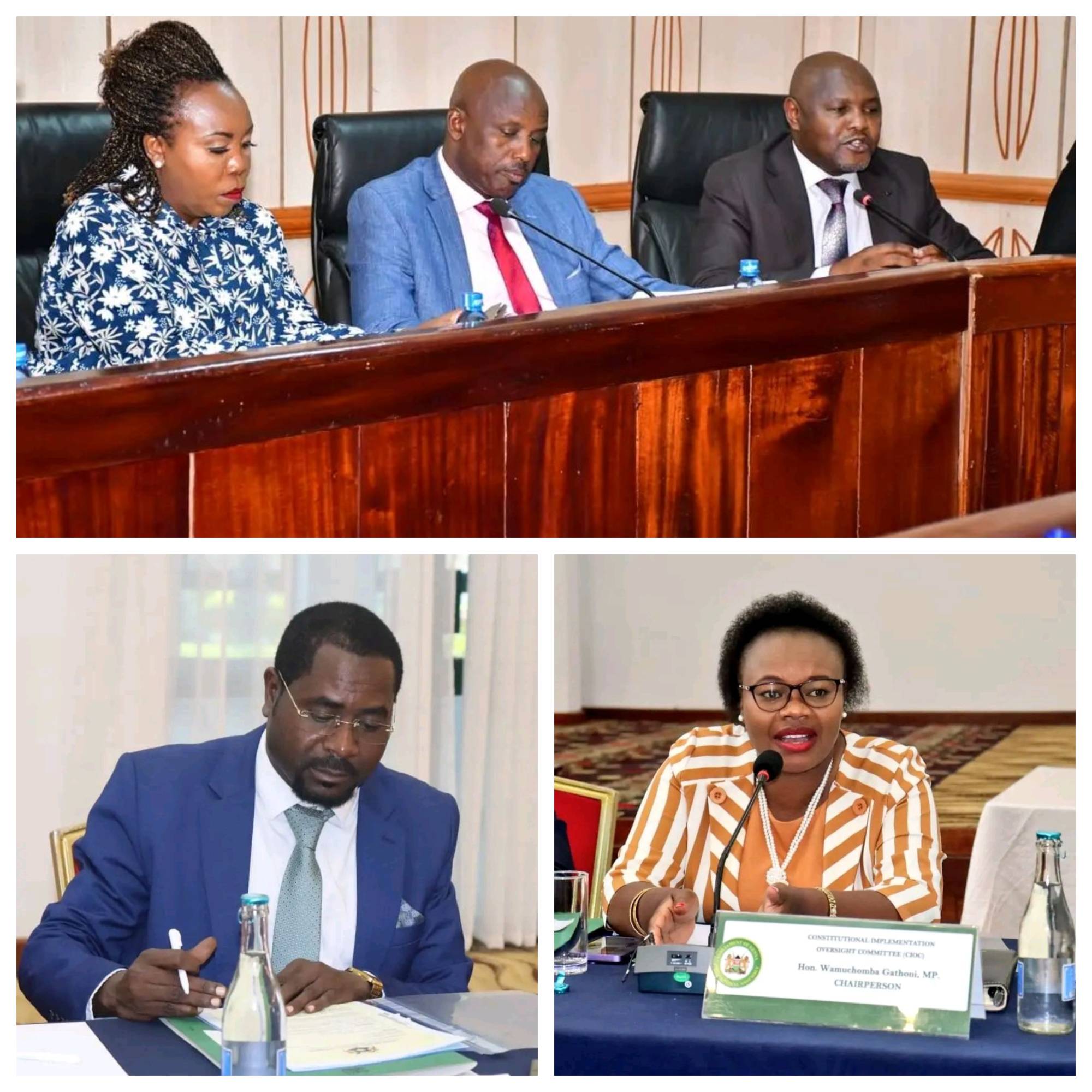𝐂𝐎𝐍𝐒𝐓𝐈𝐓𝐔𝐓𝐈𝐎𝐍𝐀𝐋 𝐈𝐌𝐏𝐋𝐄𝐌𝐄𝐍𝐓𝐀𝐓𝐈𝐎𝐍 𝐀𝐍𝐃 𝐎𝐕𝐄𝐑𝐒𝐈𝐆𝐇𝐓 𝐂𝐎𝐌𝐌𝐈𝐓𝐓𝐄𝐄 𝐄𝐍𝐆𝐀𝐆𝐄𝐒 𝐄𝐓𝐇𝐈𝐂𝐒 𝐀𝐍𝐃 𝐀𝐍𝐓𝐈-𝐂𝐎𝐑𝐑𝐔𝐏𝐓𝐈𝐎𝐍 𝐂𝐎𝐌𝐌𝐈𝐒𝐒𝐈𝐎𝐍 𝐎𝐍 𝐌𝐀𝐍𝐃𝐀𝐓𝐄
The National Assembly Committee on Constitutional Implementation and Oversight chaired by Hon. Gathoni Wamuchomba (Kiambu) met with the Deputy Chief Executive Officer (DCEO) of the Anti-Corruption Commission (EACC) Mr. Abdi Mohamud, over the discharge of the Commission's Constitutional and Statutory mandate.
The Commission's mandate is to combat corruption and economic crime in Kenya through law enforcement, prevention, public education and promotion of standards and practices of integrity, ethics and anti-corruption.
During the meeting, Members expressed concern with the rampant cases of academic fraud which they consider hazardous and a direct threat to the integrity of the county’s education. From the reports tabled before the Committee, persons altering their high school grades on their certificates, persons who forge their diploma/degree certificate, persons who use fake documents to secure employment and persons who impersonate people named on the certificate to secure positions are considered academic fraud in any National and county government.
Regarding corruption, Mr. Mohamud informed the Committee that EACC has adopted three preventive innovations to curb the vice.
Firstly, the Commission has adopted the National Ethics and Anti-Corruption Policy which provides a mechanism for coordination of anti-corruption programmes and enhances transparency and accountability in the exercise of public authority.
Secondly, the Commission has established a National Integrity Academy to offer competency based anti-corruption, ethics and good governance training to public officers and non- state actors to bolster the preventive mandate of the Commission.
Lastly, recognizing the importance of instilling ethical values from an early age, the Commission has also launched school outreach programs. These programs are designed to inculcate a sense of ethics and integrity among school children and college students. By targeting the youth, the EACC hopes to shape a future generation that actively rejects corruption and embraces ethical practices.
During the meeting, Members raised concerns about the protection of witnesses, informants, and whistleblowers who play a crucial role in bringing corrupt individuals to justice.
In his response, Mr. Mohamud assured the Committee that the EACC has established a Witness Protection Agency that provides necessary safeguards for these individuals. Ensuring their safety and security is vital in maintaining an effective anti-corruption environment
















